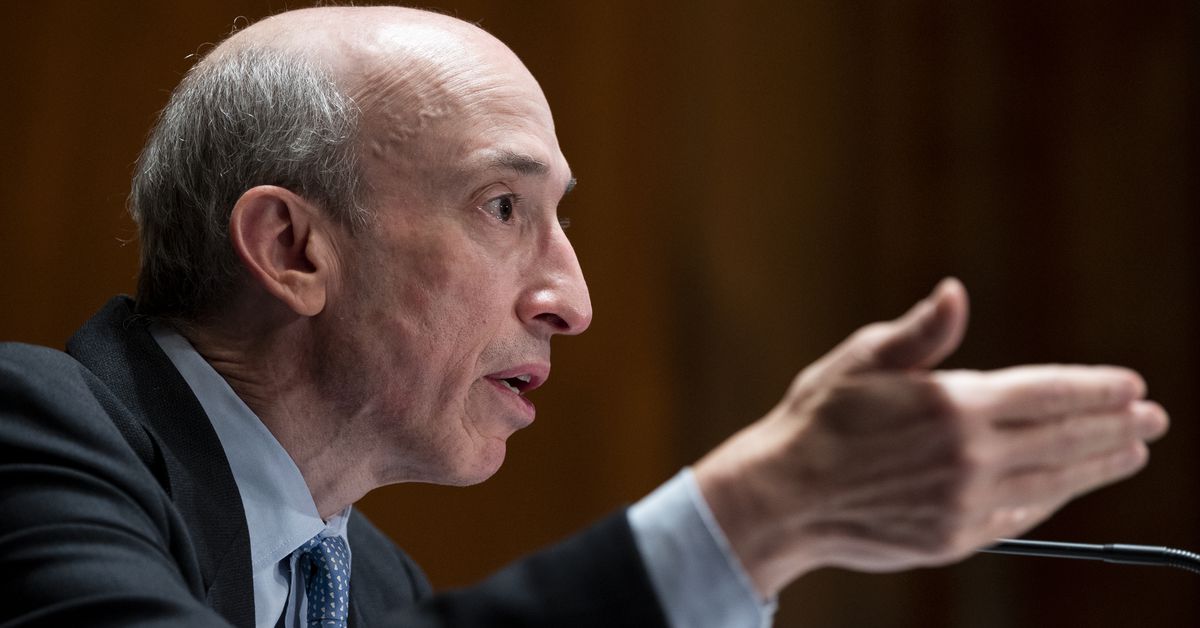U.S. Securities and Exchange Commission (SEC) Chairman Gary Gensler was in the hot seat on Tuesday during a House Financial Services Committee over

U.S. Securities and Exchange Commission (SEC) Chairman Gary Gensler was in the hot seat on Tuesday during a House Financial Services Committee oversight hearing, and many committee members – 19 of them – took the opportunity to ask Gensler about crypto regulation.
The Committee’s focus on crypto revealed the pent-up fascination – and frustration – with the growing crypto industry and the SEC’s role in regulating it.
Gensler’s testimony covered crypto exchanges, stablecoins, decentralized finance (DeFi) and more. CoinDesk breaks it down below.
The SEC’s regulatory authority
Rep. Patrick McHenry (R-N.C.), the Committee’s top Republican, questioned Gensler about his “concerning and contradictory” statements about crypto regulation and whether the SEC currently has the authority it needs to continue.
In May, Gensler told Congress that the SEC would need additional legislation to regulate and define digital assets and exchanges, but McHenry pointed out on Tuesday that in subsequent interviews with the media, Gensler’s position on this has changed: the SEC chair now posits that the SEC has the authority it needs to regulate crypto under existing legislation.
“I think that the SEC’s authorities in this space are clear,” Gensler told McHenry. “I think that Congress painted with a broad brush for the definition of ‘security’, and included 30 or 35 separate areas that are within the definition of a security to protect the public against fraud.”
Gensler told McHenry that Congress could help “fill gaps” in the coordination between the SEC and its sister regulatory agency, the Commodity Futures Trading Commission (CFTC).
Despite the seemingly brewing turf war between the CFTC and SEC over crypto regulation, Gensler was clear in his opinion that Congress does not need to create another regulatory body to oversee crypto.”We don’t need another regulator. There are things that can be done to ensure the smoothness between the two agencies … even if Congress doesn’t act,” Gensler said.
Gensler also commented on the SEC’s shrinking budget, and reiterated his request that Congress provide additional funding to the SEC to hire more staff and modernize its data analytics software.
“We’ve shrunk about 4 or 5% in the last four or five years. I would have hoped that we might have grown 4 or 5% at this period of time,” said Gensler. “I know resources are tight, but it would help us to do our mission.”
Are cryptocurrencies securities?
When asked by McHenry and other committee members whether he considered cryptocurrencies like bitcoin and ether to be securities, Gensler dodged the question.”I’m not going to get into any one token,” Gensler said. “But I think that the securities laws are quite clear. If you’re raising money from somebody else, and the investing public has a reasonable anticipation of profits based on the efforts of others, that fits within the securities law.”
Gensler testified that “most” of the 5,000-6,000 existing cryptocurrencies fall under the definition of a security and are thus subject to regulation by the SEC – a similar position to that of his predecessor Jay Clayton.
Rep. Tom Emmer (R-Minn.), chair of the Congressional Blockchain Caucus and a vocal supporter of the crypto industry, pushed back against Gensler’s assertion, saying that he considers most cryptos to fall under the definition of a commodity or currency.
Another member of the Congressional Blockchain Caucus, Rep. Warren Davidson (R-Ohio) asked Gensler what it would take for cryptocurrencies to transition from securities into commodities or currencies, referencing 2018 statements in which Gensler said that ether could be “off the hook” from being considered a security because it had transitioned to a decentralized network.
“You’ve repeatedly said that you believe initial coin offerings [ICOs] are securities,” Davidson said. “Can you clarify when a token is sufficiently decentralized to no longer be a security in your view?”
Gensler refused to comment on ether or any other specific token, instead saying that any token that passed the Howey test would be considered a security.
Gensler is coming for the exchanges
In response to a question from Rep. Jim Himes (D-Conn.) Gensler discussed his reasoning for focusing on regulating trading and lending platforms – including the decentralized ones.
“Investors are basically giving ownership rights up. They transfer what’s called a private key to the platform … and the platforms take custody,” Gensler said.
Gensler continued, saying:
“I think that such a tremendous amount of activity happens there, and it’s a place where we could get better investor protection … even in the decentralized platforms, or so-called DeFi platforms, there is a centralized protocol. And though they don’t take custody in the same way, those are the places where we can get the maximum amount of public policy.”
Gensler repeatedly urged…
www.coindesk.com
